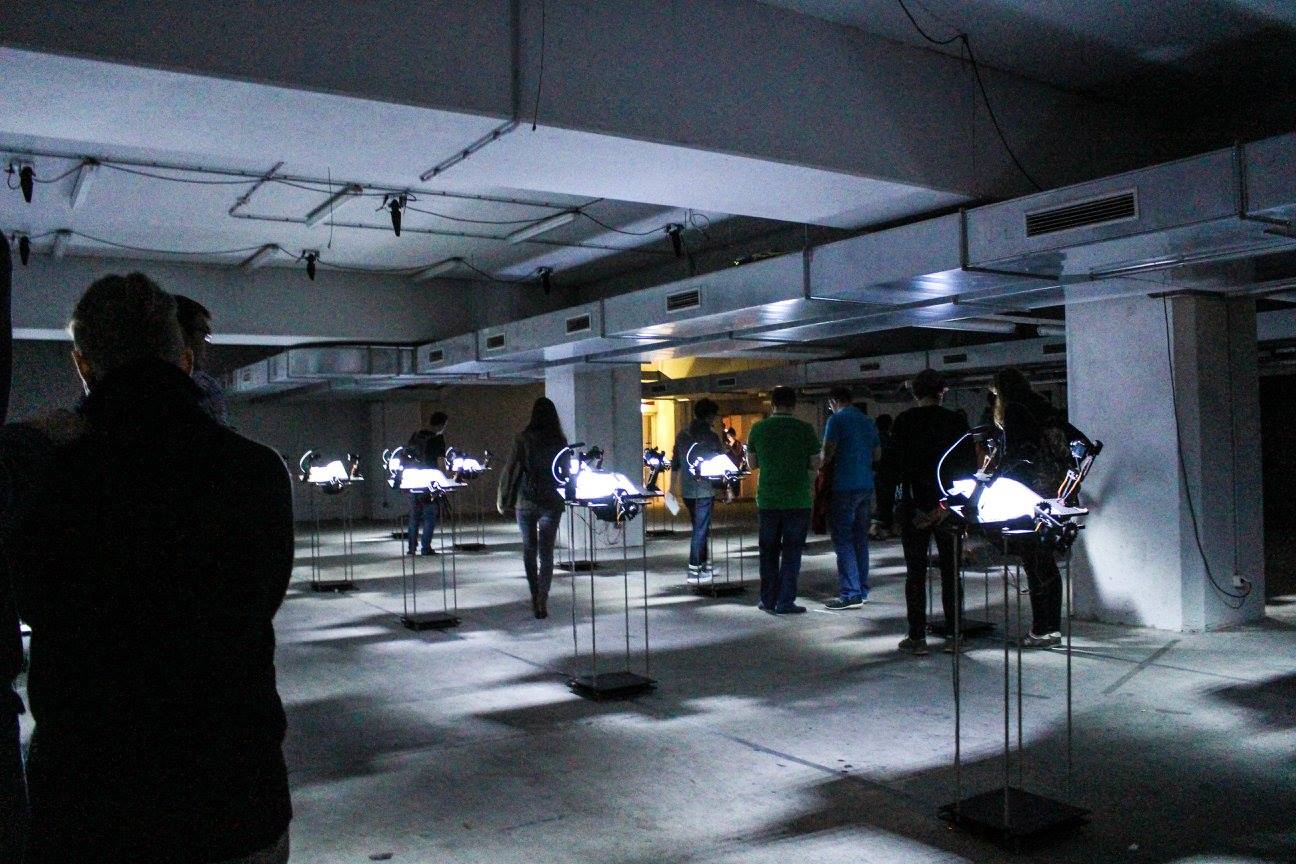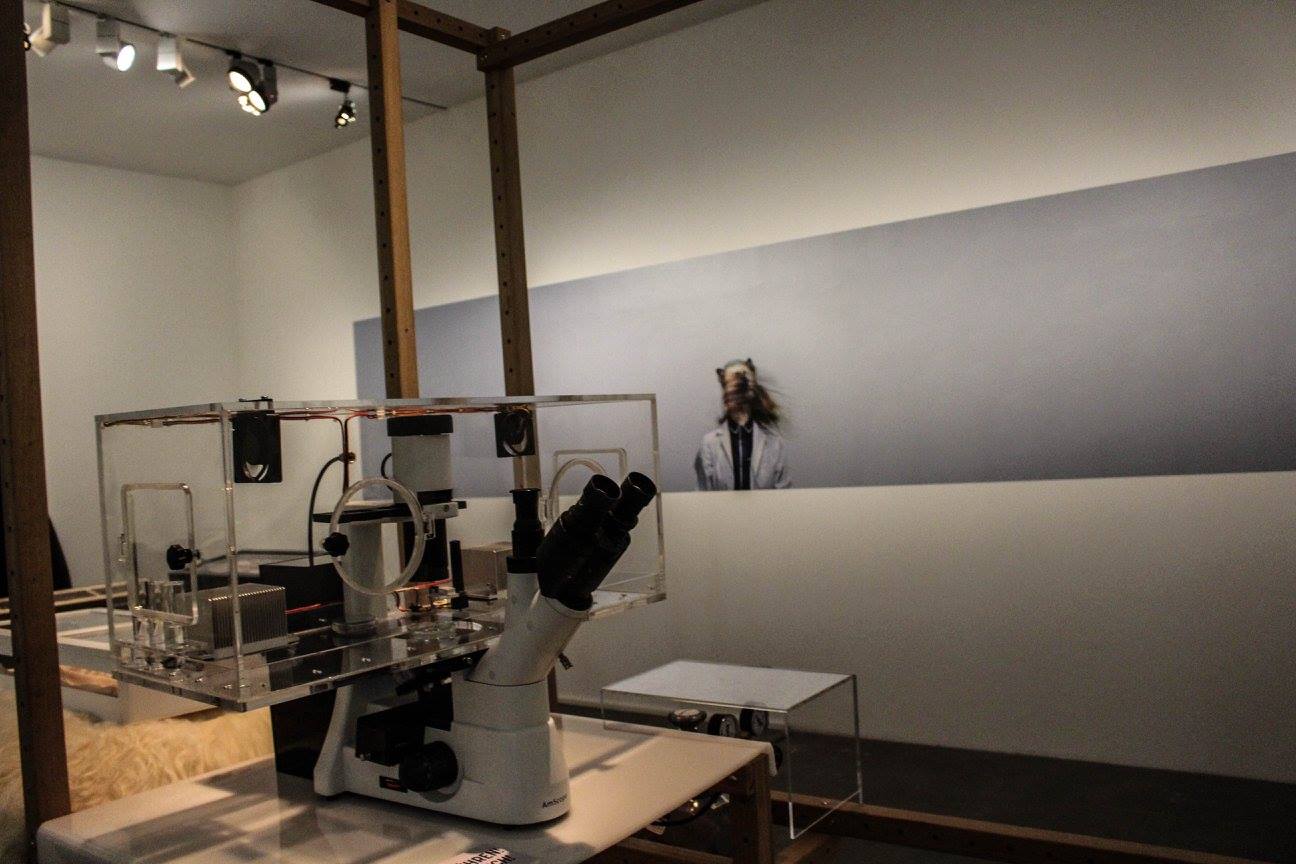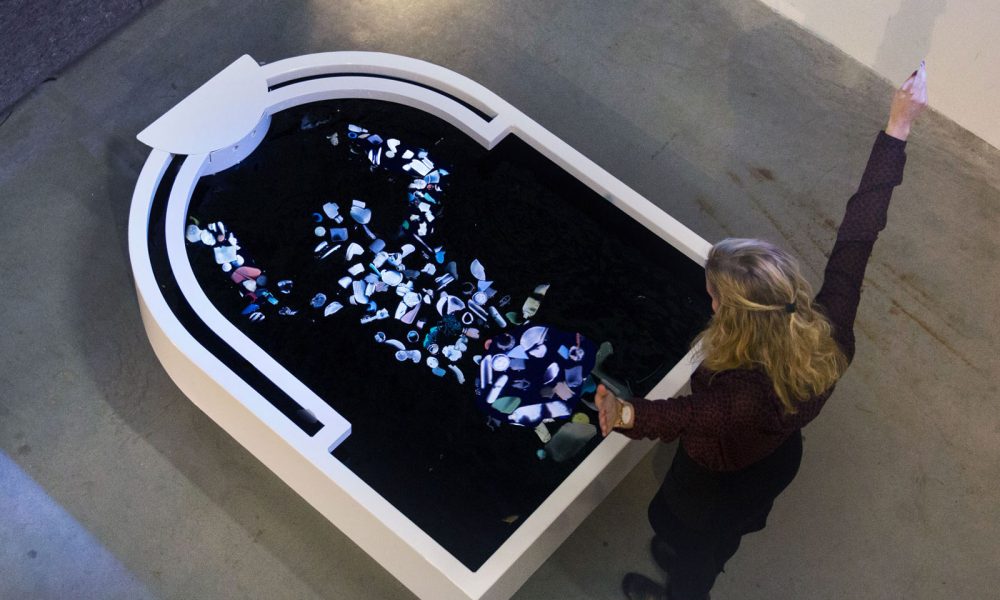
Ars Electronica 2017 - Lien-Cheng Wang "Reading Plan" - © A. Fizir pour ArtJaws

Ars Electronica 2017 - Maja Smrekar, "Hybrid Art – K-9_topology" - © A. Fizir for ArtJaws
From September 6-10, 2018, Ars Electronica, the world’s largest media art venues, a digital music festival, a showcase for creativity and innovation, and a playground for the next generation, presents its new edition with the theme “Error – The Art of Imperfection”.
Ars Electronica is once again summoning hundreds of artists, scientists, engineers, designers, technologists, entrepreneurs and social activists worldwide to gather in Linz September 6-10 to jointly investigate current technological and social interdependencies and their potential future manifestations. All of this will take place in public and together with people from all walks of life, since a defining aim of Ars Electronica is to take leave of the classic premises devoted to culture and scholarship and to stage an internationally unique festival of art, technology and society amidst the public sphere in downtown Linz.
This year, Ars Electronica explores the place of error in our society with the theme “Error – The Art of Imperfection”:
At what point does an error become a mistake, a fail, and what makes it the celebrated source of unprecedented ideas and inventions? When is an error an oversight and when is it intentional deception, a fake? An error is a discrepancy from what we expect, a deviation from the norm … but what is the norm and who establishes it? An error doesn’t have to be a mistake; it can be an opportunity!
But how much tolerance can we summon up for such deviations, and is it enough for the leeway and latitude that are necessary to unleash their inherent productive power which can be harnessed for social and economic innovation? Or will we allow ourselves to be misled by the populist rhetoric of fear and social scoring? Observing the current situation, one very quickly gets the impression that something has gone terribly wrong with the Digital Revolution and the 21st century. Millions of people feel that they have been defrauded of their sovereignty over their data and their privacy. Deception and fakery have become realities of everyday life, and influence public sentiment and the public opinion formation process. And hovering above it all is a diffuse anxiety of being left behind by the swift dynamics of development. Was the dream of a beautiful digital world an error, and how can we rescue this dream?
Ars Electronica source / More information here

